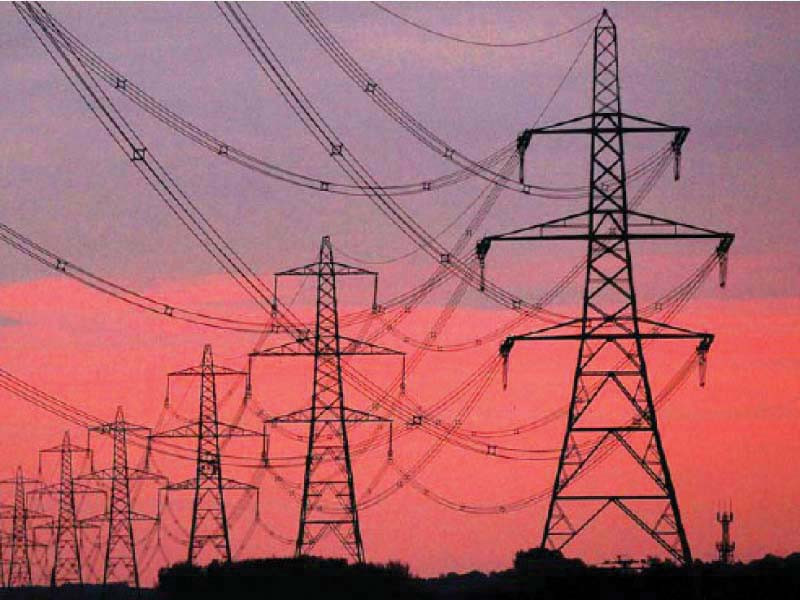
Power companies in Pakistan are under scrutiny once again as citizens across the country express their bewilderment over high electricity bills. After a considerable backlash on social media, Islamabad Electric Supply Company (IESCO) and Lahore Electric Supply Company (LESCO) issued a statement on their Twitter pages explaining the way that Fuel Charge Adjustments (FCA) are applied to consumer bills.
Both statements attempted to clarify that the role of distribution companies is limited in this respect. However, such statements will do little to pacify the approximately 34 million electricity consumers across Pakistan, who assume that DISCOs are shirking their responsibility. In reality though, it seems that these companies do not have the level of influence in setting electricity rates as the public perceives.
The cost of electricity for consumers across Pakistan is fixed under a uniform slab-wise tariff policy that has been determined by the National Electric Power Regulatory Authority (Nepra) and the government of Pakistan, through the Ministry of Energy Power Division. However, the actual costs of producing electricity are much higher. The difference is subsidised by the government on behalf of consumers, thus preventing any “discrimination”.
Distribution companies are at the mercy of the government to a) determine the amount of subsidy and b) release the amounts owed by the government to distribution companies. The latter is necessary to streamline cash flows. If a company is hypothetically producing electricity at 20 rupees with a promise to receive 10 rupees in subsidy from a third party, but does not receive this money in time, the company is effectively running a “loss” of ten rupees per unit of electricity.
Power companies do not exist in isolation. They have to make payments to fuel suppliers and manage operations. Delays in release of funds creates a precarious situation. This is dangerous because electricity is a fundamental driver of homes, offices, factories and overall economic activity. No distribution company in Pakistan can unilaterally change the cost of electricity being charged to consumers without the approval of the regulatory authority.
On the other hand, global prices of fuel are also increasing to unprecedented levels on the back of various geopolitical and macroeconomic factors. Even the most accurate of projections could not have accounted for the impact of a global pandemic, the war in Ukraine and the rapid depreciation of the rupee against the dollar. Similarly, the non-availability of natural gas and a decreasing share of hydel generation is also driving an uptick in the use of expensive furnace oil and Regasified Liquefied Natural Gas (RLNG), which are both imported fuels.
If SSGC and SNGPL – both state-owned organisations – prioritise the allocation of fuel towards the power sector, the benefit of cheaper fuel can be passed on to a larger segment of the population. The most that the Central Power Purchase Authority (CPPA) can do is to present the monthly data of the cost of fuel they have incurred in producing the required units of electricity on behalf of the distribution companies. Costs over and above the reference prices have been determined by the regulator to be recovered from consumers under Section 31(7) of Nepra Act (XL of 1997).
The alternative would be for the government to absorb these costs as subsidies, which could only be possible if the economic situation of the country was stable enough. Even then, this current situation is untenable. Independent analysis from Arif Habib shows that the cost of electricity production has risen by 160% in just one year, on the back of surging prices of RLNG and furnace oil. This hike is being borne by the consumers as well. Recently, the government of Pakistan announced a relief package on fuel charge adjustments for the month of June, 2022.
The eligibility criterion was established as consumers with sanctioned loads below five kilowatts who had used 300 units or less in the month of June. DISCOs began facilitating customers under the notified instructions but protests arose again across the country over an alleged “skewed” implementation which excluded other consumers. Despite DISCOs issuing an explanation of the modalities through their social media platforms, it was difficult to overcome people’s sentiments over their perceived responsibility in the process.
Another concern is the levying of taxes by the government. Ostensibly, this is a measure to widen the tax net to fulfil the requirements of the IMF, similar to the removal of subsidies on consumer costs of electricity. In this scenario, however, the distribution companies are only facilitators and executors, not the decision-makers. The revised, fixed sales tax regime was introduced across the country under the Finance Act 2022, which was vehemently protested by commercial consumers across Pakistan. The government has since retracted the order and commercial consumers across the country will now be applied a variable sales tax as a percentage of their bills.
Electricity bills up to Rs20,000 will be charged 5%, while consumption above Rs20,000 will be charged 7.5% as a taxable amount. The power sector provides a fundamental service to the country. But the current circumstances reveal that this sector is a delicate house of cards propped up on shaky foundations. The majority of the control – the monopoly of tariff-setting – is retained by the regulator and the government of Pakistan. DISCOs, unfortunately, can only reiterate their limited role. However, they face the agony and wrath of customers, being on the forefront of the electricity supply chain.
THE WRITER IS A STAFF CORRESPONDENT


















COMMENTS (1)
Comments are moderated and generally will be posted if they are on-topic and not abusive.
For more information, please see our Comments FAQ